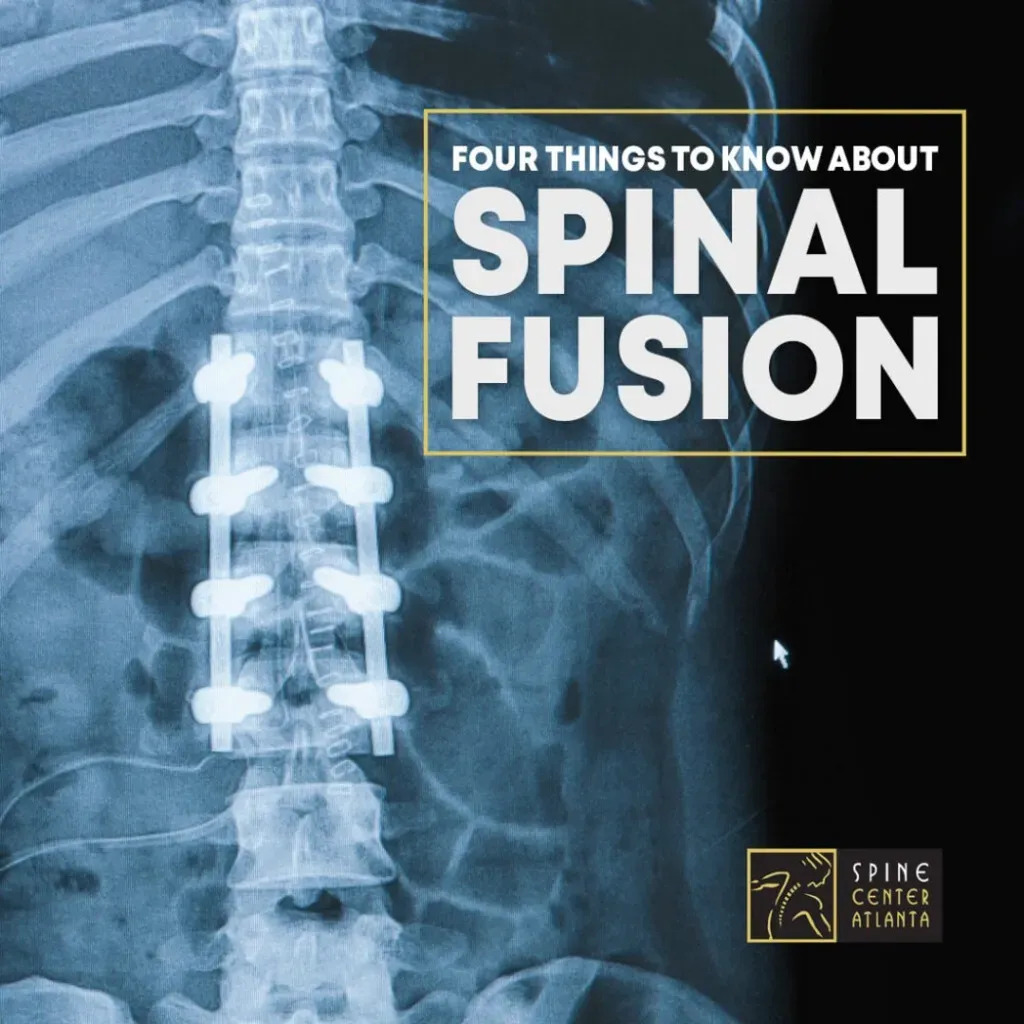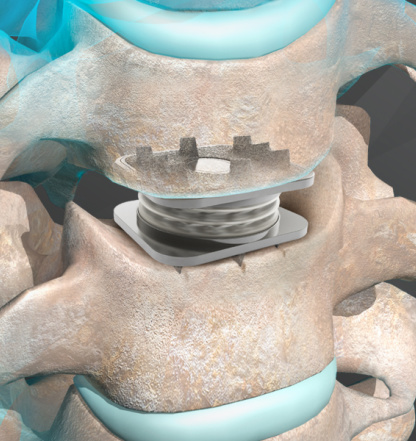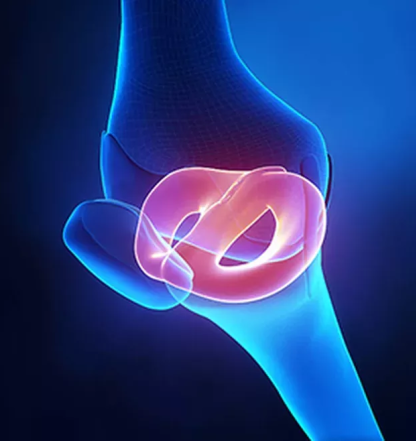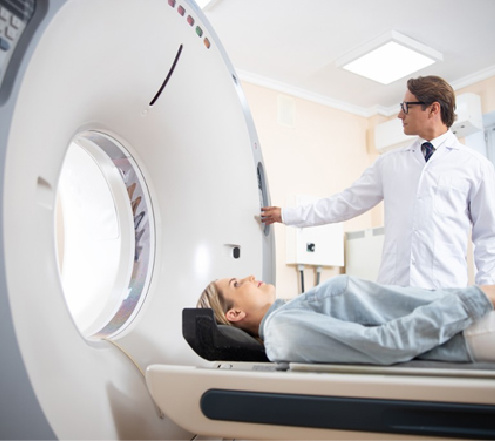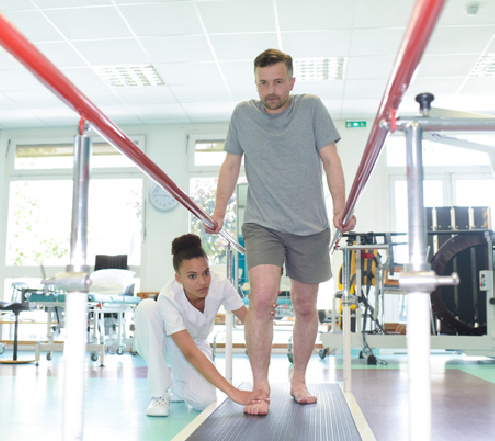Chronic neck or back pain can be incredibly difficult to live with. It can affect your relationships, your work, and even your ability to accomplish basic tasks around the house. If you have been trying to overcome pain for weeks and months…
Chronic neck or back pain can be incredibly difficult to live with. It can affect your relationships, your work, and even your ability to accomplish basic tasks around the house. If you have been trying to overcome pain for weeks and months without relief, it can start to feel hopeless.
Fortunately, there is a wide range of options available that help thousands of people find the relief they need for a good quality of life. By educating yourself on these therapies and keeping a positive attitude you can give yourself the best chance of a positive outcome.
Spinal fusion is a form of spine surgery that most people have heard of, even if they are not overly familiar with it. For persistent neck and/or back pain, many people wonder if they will need spinal fusion and what that may involve. To help you be more informed on your treatment journey, we’re sharing the following four facts about spinal fusion.
1. Spinal Fusion Procedures Help to Stabilize the Spine
Another term for spinal fusion is spinal stabilization surgery. There are many different approaches to fusion, and the specific techniques required will vary on a case-by-case basis, but the overall goal of a fusion is to stabilize the spine if aging and/or injury has destabilized it.
The spine is a stack of tubular bones, called vertebrae, that are linked by joints and cushioned by rubbery discs. Over time, these discs can begin to lose height and elasticity, which causes instability in the spine, among other problems. This can result in loss of function, reduced range of motion, and an increased chance of painful nerve compression.
While many patients can find relief from conservative treatment options, surgery can become a serious option if weeks or months go by without finding sufficient relief. Fusion surgery may be recommended in more severe cases where there is instability caused by degenerative discs. Specific types of fusion surgery include:
- Anterior lumbar interbody fusion
- Anterior/posterior spinal fusion
Typically, a fusion procedure will involve removing the disc and any damaged disc material, such as small disc fragments, between the vertebrae. The surgeon will then implant bone graft material and additional hardware to stabilize the vertebrae. The bone graft should encourage the two surrounding vertebrae to fuse and stabilize the section of the spine.
2. Not all Spine Surgeries are Spinal Fusions
Spinal fusion procedures are only one category of spine surgery. Another category of spine surgery is called decompression procedures. These types of spine surgery involve removing the spinal anatomy that is causing nerve compression and pain.
Decompression surgery may be all that is needed if there is no advanced degeneration and instability in the spine. Types of decompression surgery include:
- Decompressive laminectomy
- Microdiscectomy surgery
Additionally, there are also stabilization surgeries that are an alternative to fusion. This can involve replacing the degenerative disc with an artificial disc to stabilize the spine while still allowing for movement. Another approach uses a device called CoflexⓇ to replace the disc without the reduced mobility associated with fusion.
The right surgical procedure, whether it is fusion, fusion alternative, or decompression depends on the specific diagnosis and patient. You should expect to undergo a thorough consultation and evaluation before receiving a surgical recommendation and undergoing a procedure.
3. Spinal Fusion Can Be Minimally Invasive
Many people associate fusion surgery with a full open-back procedure that requires a large incision and a long difficult recovery period. Thanks to advances in medical technology and surgical technique, it is now possible to access the spine and perform a fusion with a far less invasive approach compared to historical approaches to fusion.
Once again, the invasiveness of a fusion procedure will vary on a case-by-case basis, with procedures such as multi-level fusions still requiring a larger incision and an inpatient hospital stay. However, nearly any type of fusion procedure has benefited from advanced visualization technology and muscle-sparing techniques that can significantly reduce the incision size and amount of muscle disruption.
Single-level fusions and fusion alternative stabilization procedures can now involve a relatively short recovery time, a smaller incision, and can even be performed on an outpatient basis in some situations. After a patient recovers from spinal anesthesia, they can even be up and walking within hours of the procedure. Once again, the type of procedure will be determined by a thorough patient evaluation, review of medical history, and physical examination.
4. Recovery is Critical to a Positive Spinal Fusion Outcome
No matter what kind of spine surgery a patient undergoes, the recovery and rehabilitation process is always critical to the process. Any type of procedure involves healing and a requirement for regaining mobility and range of motion.
Overexerting yourself during this critical period can result in disrupting the fusion process and causing complications to recovery. Meanwhile, not resuming activities quickly enough can also result in loss of function and regaining strength in and around the spine that can result in a suboptimal recovery. This is why it is important to follow all post-operative instructions and fully commit to physical therapy and rehabilitation programs.
At Spine Center Atlanta, our caring team can guide you through the entire diagnostic, surgical, and rehabilitation process surrounding any type of spine surgery, including spinal fusion procedures. We have a world-class facility, top board-certified surgeons led by founder Dr. James L. Chappuis, and a dedicated team of spinal anesthesia experts and rehabilitation specialists.
Don’t let chronic neck or back pain take you away from the quality of life you deserve. Contact Spine Center Atlanta today for your initial appointment and start your journey toward relief.


